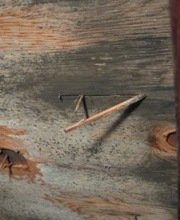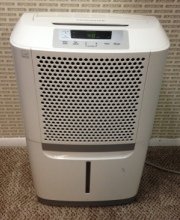Find a Mold Specialist Now
Click or Call, Toll-Free 24/7
how to test for mold
People often ask us how to test for mold, especially if they are experiencing allergy symptoms, worsening asthma, frequent sinus infections, or other symptoms suggesting they might be experiencing illness related to mold exposure. People might also want to test for mold if they notice a musty odor in the home, which usually means mold is growing somewhere. It is possible to have mold in your home that you can’t see because mold often grows in hidden places, like in heating, ventilation and air conditioning (HVAC) ducts, inside walls, in crawlspaces, and in attics.
A mold test lets you know if mold is growing in your home. We’ll tell you about your options for mold testing and how to find a professional if you need to hire someone to do the work.
How to Test for Mold Yourself
People sometimes prefer to buy a do-it-yourself mold test kit instead of hiring a professional, sometimes because it’s cheaper, sometimes because they just prefer to do things themselves. We’ll tell you up front that we don’t recommend those do-it-yourself mold test kits because they simply don’t provide the accurate results that a qualified professional can provide. We will tell you how those test kits work, though, and explain why we aren’t in favor of them.
 Mold found under carpeting
Mold found under carpetingMost of the mold test kits you can purchase for use at home contain one or more Petri dishes that you set on a surface for 24 hours to allow mold spores to settle on them. The tests usually give you positive or negative result, with positive meaning yes, you do have mold and negative meaning no, you do not have mold. They usually do not tell you how much mold you have or what kind. Sometimes you can send the test to a lab, for an additional cost, to be tested to tell you what kind of mold spores were found. That increases the cost considerably and many lay people have trouble understanding the technical language of the lab report without someone to interpret it for them.
Perhaps the biggest drawback to do-it-yourself mold tests is the potential for inaccurate results due to improperly performed tests. Most professional mold testers are engineers and they have extensive training on how to conduct mold tests with precision. Most homeowners are unfamiliar with proper testing protocol and even when they follow directions carefully, it’s unrealistic to expect them know how to test for mold as accurately as an experienced engineer.
If you do decide to do mold testing yourself, be sure to read all directions carefully before you start. Contact the manufacturer if you have any questions before you perform the test. Follow the directions exactly. If you need really accurate, detailed results, though, we recommend calling a professional.
How a Professional Tests for Mold
Professionals can test for mold in two ways. They might sample the air for drifting mold spores or they might test a specific surface for mold. An experienced professional will be able to explain which type of test will be most informative in your specific situation. They usually test two or more areas of the home and compare the results. You’ll get a detailed report, including the type or types of mold found (often there are several types of mold in a home) and how much of each type was found. The mold tester will be able to explain the results to you and tell you the expected or typical amounts of mold and how these compare to your results.
If mold is discovered, the mold tester will return to test your home again after the mold has been removed to make sure the job was done well. This is an important step that is recommended by the U.S. Environmental Protection Agency whether you hire a mold removal professional or handle the job yourself, because if any mold is left behind, you could have a full-blown mold problem in your home again. Mold grows and spreads very easily.
Hiring a Professional Mold Tester
If you need to test your home for mold, the Environmental Protection Agency recommends hiring a professional that follows the guidelines established by professional organizations like the American Conference of Governmental Industrial Hygienists and the American Industrial Hygiene Association. They will know how to test for mold as well as how to explain the test results to you and you’ll get much more accurate results than you would by using a home mold test kit. To find experienced, qualified mold testers in your area, just follow the link.
Return From How To Test For Mold To Our Main Testing Page
EPA: Mold Testing
Privacy Policy Terms and Conditions Accessibility Do Not Sell My Information Disclaimer Contact Us




